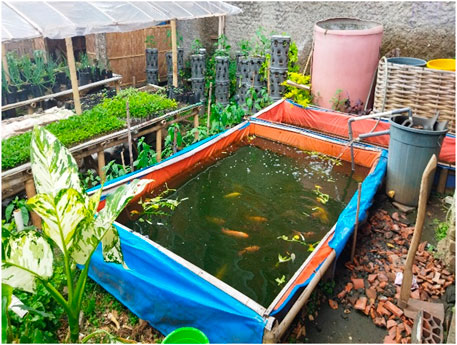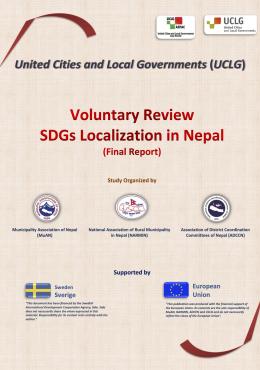How httpssdg2030indonesia.org is Tackling Global SDG Challenges Locally
In an age where global challenges require urgent attention, the Sustainable Development Goals (SDGs) framework offers a pathway for nations to localize their responses significantly. Indonesia, with its diverse geographical and cultural landscape, faces unique challenges in achieving these goals by 2030. The initiative spearheaded by the website https://sdg2030indonesia.org/ serves as a beacon of hope, tackling global SDG challenges through localized solutions. By integrating community engagement, innovative policies, and strategic collaborations, this initiative is transforming how Indonesia approaches sustainable development. Posted by https://sdg2030indonesia.org/
Understanding the SDG Framework

The Sustainable Development Goals comprise 17 interconnected global goals designed to be a "blueprint to achieve a better and more sustainable future for all." These goals encompass various aspects, including poverty alleviation, gender equality, clean water, climate action, and more. They aim to address pressing issues that transcend national boundaries but manifest uniquely within different regions and communities.
The Importance of Localizing SDGs
Localizing the SDGs means adapting these global objectives to meet the specific needs of local environments, cultures, and economies. By focusing on local contexts, organizations can develop more effective strategies tailored to their communities, leading to better outcomes.
Socio-economic factors play a significant role in how different regions pursue these goals. For instance, rural areas in Indonesia may prioritize access to clean water differently than urban centers focusing on sustainable city development. This localization ensures that no one is left behind in efforts towards sustainability and equity.
The Role of Stakeholders in Achieving SDGs
Achieving the SDGs requires the collaboration of various stakeholders, including government agencies, civil society, private sector entities, and local communities. Each stakeholder brings unique insights and resources that contribute to a more holistic approach to problem-solving.
Public-private partnerships are particularly vital in mobilizing resources and expertise. For example, businesses can invest in sustainable practices, while governments create conducive policies to facilitate such developments. This synergistic relationship can effectively address complex challenges that individual entities might struggle to tackle alone.
Community Engagement: A Differentiating Factor

At the heart of the efforts by https://sdg2030indonesia.org/ lies robust community engagement. This grassroots approach ensures that local voices shape initiatives aimed at addressing global challenges.
Empowering Local Communities
Empowerment involves equipping communities with knowledge, skills, and resources to participate actively in decision-making processes. The initiative provides workshops and training sessions focused on enhancing local capacities to address SDG-related challenges.
When communities understand the significance of the SDGs, they become more inclined to take ownership of initiatives that affect their lives. This not only enhances accountability but also fosters innovation as local residents propose creative solutions based on their lived experiences.
Collaborative Problem-Solving
Collaboration among community members leads to a pooling of ideas and resources, which can result in more effective solutions. Various community-led projects have emerged from such collaborative efforts, addressing issues like waste management, renewable energy implementation, and education access.
By working together, communities cultivate a sense of solidarity and shared purpose, which is crucial for overcoming barriers related to sustainable development. The initiative encourages this spirit of cooperation, recognizing it as a powerful tool for creating lasting change.
Utilizing Technology for Community Engagement
Technology plays a pivotal role in enhancing community engagement initiatives. Through digital platforms, communities can share information, raise awareness, and mobilize support for local projects.
This technological embrace allows for wider outreach and inclusion, especially for marginalized groups who may otherwise be voiceless in traditional forums. Social media campaigns, mobile applications, and online training modules make it easier for individuals to educate themselves and participate in SDG-related activities.
Innovative Approaches to Development

Innovation is essential for tackling the multifaceted challenges posed by the SDGs. The initiatives promoted by https://sdg2030indonesia.org/ showcase how creative thinking can lead to impactful solutions.
Building Sustainable Infrastructure
Sustainable infrastructure is critical in fostering economic growth while minimizing environmental impact. Innovative designs focus on utilizing eco-friendly materials and advanced technology to construct buildings and facilities that align with sustainability principles.
For instance, initiatives that promote green architecture not only reduce carbon footprints but also enhance energy efficiency, providing long-term benefits to both the economy and the environment. By championing such innovations, the initiative helps cities in Indonesia progress toward multiple SDGs concurrently.
Fostering Entrepreneurship and Innovation
Entrepreneurship acts as a catalyst for local economic development. Programs encouraging young entrepreneurs to innovate within their communities have seen remarkable success, generating employment opportunities and driving sustainable practices.
These entrepreneurial ventures often focus on environmentally friendly products and services, reflecting a growing market for sustainability-oriented businesses. The initiative’s support for local startups fuels creativity and propels the SDGs forward by showcasing practical examples of how business and sustainability can coexist harmoniously.
Adopting Circular Economy Principles
A circular economy minimizes waste and emphasizes the continual use of resources. The initiative promotes this model by encouraging communities to rethink consumption patterns and adopt sustainable practices.
Educational programs teaching the principles of recycling, reusing, and reducing help instill a culture of sustainability in daily life. As communities shift to circular models, they not only alleviate pressure on environmental resources but also tap into new economic avenues through waste valorization.
Policy Advocacy and Strategic Collaborations

Policies play a crucial role in shaping the trajectory of sustainable development. The advocacy efforts led by https://sdg2030indonesia.org/ highlight the need for policies that are inclusive, transparent, and geared towards achieving the SDGs.
Creating a Supportive Policy Environment
Engaging policy-makers in meaningful dialogue about the importance of the SDGs is vital. The initiative collaborates with local governments to ensure that policies reflect community needs and aspirations.
Furthermore, aligning local policies with the SDGs creates a structured approach to development, making it easier for communities to implement initiatives that contribute to these goals.
Leveraging Multi-Stakeholder Partnerships
The complexity of the SDGs calls for a multi-stakeholder approach. The initiative emphasizes forming alliances between different sectors—government, non-profit, and private—to create comprehensive strategies for sustainable growth.
These partnerships foster knowledge-sharing and resource mobilization, allowing for a broader reach and scale of impact. When varied organizations come together to drive collective action, they can address challenges more effectively than isolated efforts.
Monitoring and Accountability Mechanisms
Ensuring that policies and initiatives yield the desired results necessitates robust monitoring and evaluation frameworks. The initiative advocates for transparency and accountability in implementing SDG-focused projects.
Community involvement in assessing progress can further enhance the accountability of projects, allowing local populations to gauge their effectiveness and advocate for adjustments as needed. This participatory approach reinforces the commitment to leaving no one behind on the path to sustainability.
FAQs

What are the Sustainable Development Goals?
The Sustainable Development Goals (SDGs) are a global agenda set by the United Nations in 2015, comprising 17 goals aimed at addressing various social, economic, and environmental challenges by 2030.
How does https://sdg2030indonesia.org/ contribute to achieving the SDGs?
The website serves as a platform for fostering community engagement, promoting innovative solutions, advocating for supportive policies, and facilitating strategic partnerships to address local challenges related to the SDGs.
Why is localizing the SDGs important?
Localizing the SDGs ensures that the global objectives are adapted to the unique contexts of different communities, making them more relevant and achievable while honoring local cultures and ecosystems.
What role do communities play in achieving the SDGs?
Communities play a central role by taking ownership of initiatives, collaborating on solutions, and actively participating in decision-making processes that affect their lives, thereby driving sustainable change from the ground up.
How can individuals get involved in supporting the SDGs locally?
Individuals can get involved by participating in community initiatives, volunteering with organizations focused on sustainability, raising awareness about the SDGs, or starting their own projects aimed at addressing local challenges.
Conclusion
The work being done through https://sdg2030indonesia.org/ exemplifies how localized efforts can address global Sustainable Development Goals challenges. By engaging communities, fostering innovation, advocating for favorable policies, and forming strategic partnerships, Indonesia sets a compelling precedent for other nations grappling with similar issues. Together, these collective actions illustrate that sustainable development is not just a distant goal; it is an attainable reality driven by the determination of local communities and the collaborative spirit of various stakeholders. As we move toward 2030, the lessons learned from these initiatives will be invaluable in shaping a more sustainable world for generations to come.